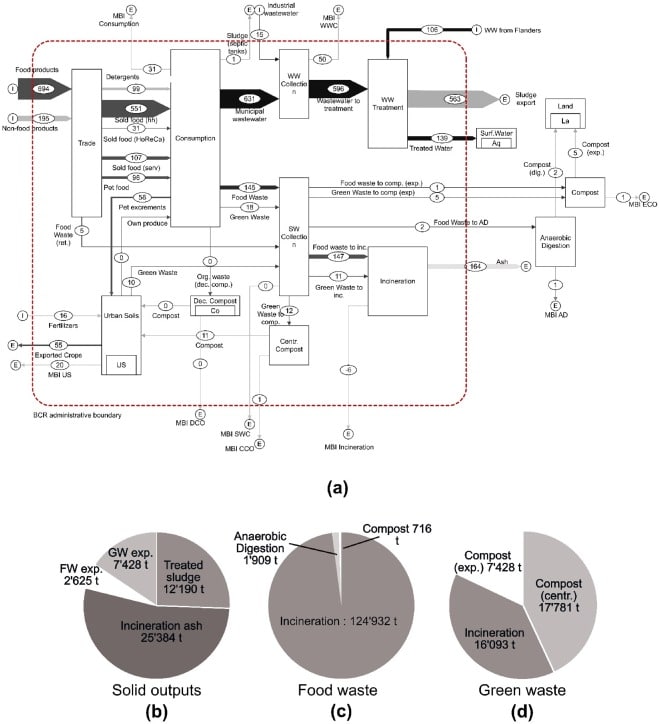Anastasia Papangelou is PhD-candidate the KU Leuven, Department of Earth and Environmental Sciences. From April 1, 2016, until March 31, 2019, she was appointed at the research project Circular Economy of the MSCA ITN programme SUSPLACE.
Phosphorus and energy flows through the food system of Brussels Capital Region by Anastasia Papangelou, Wouter M.J. Achten, Erik Mathijs is published in Resources, Conservation and Recycling.
Abstract
Urban food systems are linear and wasteful. Strategies towards more circular food systems need to be adopted; however, what these strategies may be and what effects they may have on other urban systems is not well documented. With this study, we offer a systemic representation of the Brussels Capital Region food system through mapping its phosphorus and energy flows, and we evaluate the effect that three theoretical scenarios will have on these flows, and on the circularity level of the system. The results show that the Brussels food system is strongly linear and that no more than 2% of the incoming P can currently be reused within the city. Food waste valorization and sewage sludge utilization can increase the amount of P available for reuse without negatively affecting the net amount of electricity recovered. The amount of P available in the urban effluents can theoretically cover the demand for mineral P in the agricultural systems of the two neighboring Brabant provinces. The regulatory framework for the reuse of urban effluents is, however, hostile and it is still to be determined whether there is a demand for re-introducing these P flows in the agri-food system that feeds Brussels.

